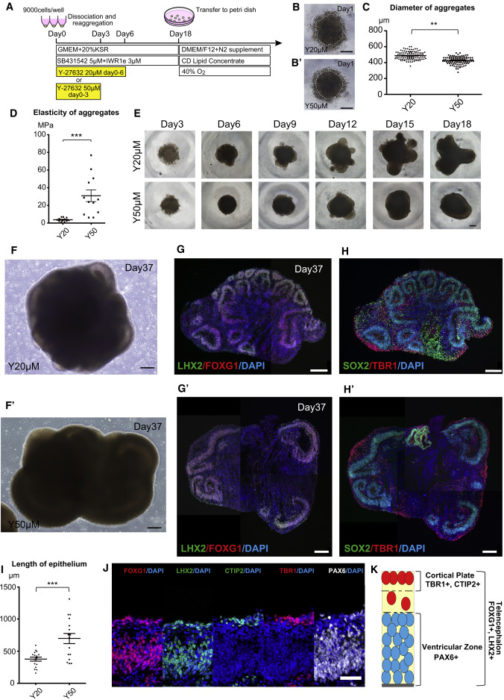Jul
09
2019
 Vitamins are, by actual definition, essential nutrients for humans. They are substances we need but cannot make ourselves from other nutrients, and therefore must consume. Each of the vitamins have a disease resulting from a deficiency of that vitamin. For some there may also be negative health effects from having an insufficiency (less than optimal levels, but not low enough to cause a deficiency state). This is why you should eat your vegetables, and have an overall well-rounded diet – to make sure you get enough of all the vitamins and other needed nutrients.
Vitamins are, by actual definition, essential nutrients for humans. They are substances we need but cannot make ourselves from other nutrients, and therefore must consume. Each of the vitamins have a disease resulting from a deficiency of that vitamin. For some there may also be negative health effects from having an insufficiency (less than optimal levels, but not low enough to cause a deficiency state). This is why you should eat your vegetables, and have an overall well-rounded diet – to make sure you get enough of all the vitamins and other needed nutrients.
But of course if there is a way to exploit a fact to make money, someone will do it. In this case an entire industry has emerged to make money by convincing the public they need to take vitamin pills, the more the better. In 2017 the supplement industry in the US reached $36.1 billion a year. Unfortunately, the path to better health is not so simple, and the science simply does not support the vitamin industry hype.
Yet another meta-analysis was just published again demonstrating that routine supplementation is mostly worthless, and may even be harmful. This one is focusing on vascular outcomes, but since heart disease is the #1 killer, and stroke the #3 killer, vascular risk has a major impact on life expectancy. In 2018 I wrote about a meta-analysis published in the Journal of the American College of Cardiology. This study found:
- Multivitamins, vitamins D, C, A, B6, E, calcium, β-carotene, zinc, iron, magnesium, and selenium had no benefit or harm for vascular disease or all-cause mortality.
- Folic acid and B-complex (Folic acid, B6 and B12) reduced stroke risk
- Antioxidants and niacin increased all-cause mortality.
Continue Reading »
Jul
08
2019
Many outlets are covering the story of Mari Lopez, a YouTuber who claimed, along with her niece, Liz Johnson, that a raw vegan diet cured her breast cancer. Johnson recently updated the videos with a notice that Mari Lopez died of cancer in December 2017. She has refused, however, to take down the videos.
are covering the story of Mari Lopez, a YouTuber who claimed, along with her niece, Liz Johnson, that a raw vegan diet cured her breast cancer. Johnson recently updated the videos with a notice that Mari Lopez died of cancer in December 2017. She has refused, however, to take down the videos.
The story, unfortunately, is a common one. When people are diagnosed with cancer it is understandably a psychological shock. They face not only the grim possibility of their death, but also the prospect of surgery, chemotherapy, and/or radiation therapy – none of which are pleasant. It is a life-altering event. It also makes people vulnerable – in that situation, who wouldn’t want an escape hatch, a way to get back to their normal life? That is what cancer quackery offers – forget surgery and chemotherapy, just engage in this mild intervention, like a diet change, and your cancer will be gone.
Those who get lured in by this siren song experience one of several possibilities. First, many may still undergo some initial treatment, such as surgery, to treat the cancer, but then refuse adjunctive therapy like chemotherapy or radiation. Some of those patients may, in fact, be cured by the surgery. Often the purpose of the chemotherapy is to reduce the risk of recurrence. Others may forgo any science-based treatment.
Following the initial diagnosis, with or without some intervention, there is what we call the honeymoon period. In this phase the cancer may be relatively asymptomatic. This is especially true if it was discovered because of some screening test, like an X-ray or blood test, and not because it had already become symptomatic. This period can last for months and even years, depending on the stage and type of cancer. This is the phase where those who pursued some form of cancer quackery convince themselves that they are cured. They will also tend to credit the alternative treatment with their cure, even if they received surgery or some other standard treatment.
Continue Reading »
Jul
04
2019

Today is the Fourth of July. First, I want to say happy birthday to my two brothers, Bob and Joe, fraternal twins who were born on the 4th. But also happy birthday to America. The 4th is always a good time to reflect on what the American experiment in constitutional democracy really means.
I tend to look at it this way – process is more important than outcome. This is true in the same way it is true for science and critical thinking. Science is a system of valid methods used to build an empirical model of reality. In science, using proper methods is what counts, not the outcome of the experiment. When you put the outcome first, and then use whatever methods necessary to generate the desired outcome, that’s pseudoscience.
In the same way we have a system of government that puts the rule of law, with the Constitution being the highest law, above any particular outcome. It is supposed to be a peaceful and fair method of determining things like law, justice, rights, and the expenditure of common resources. It is valid in that it derives from the people with fair and even representation. Obviously the system is not perfect, partly because people are not perfect, but also because running a country with over 300 million people is horrifically complicated and must, by necessity, involve numerous trade-offs.
But the idea of the Constitution is that we have a system, and if everyone follows the system then at least there are checks and balances, there is a system for correction of error, people have a way to make their will felt, and the whole thing grinds messily on. A friend of mine recently observed, however, that what really has surprised and even frightened him over the last two years is the realization that the whole system is much more of a gentleman’s agreement than he ever imagined. I tend to agree.
Continue Reading »
Jul
02
2019
A new report details the progress scientists have made in developing brain organoids from stem cells. They use human embryonic stem cells to culture neurons – brain cells. Lead author, Hideya Sakaguchi, describes the process:
the progress scientists have made in developing brain organoids from stem cells. They use human embryonic stem cells to culture neurons – brain cells. Lead author, Hideya Sakaguchi, describes the process:
“The team cultured the organoids for 70-100 days, dissociated them into single cells and then disseminated them into another culture dish. The disseminated cells created neuronal networks in a self-organized manner.”
Just by culturing individual neurons together, they spontaneously formed networks and some three-dimensional tissue structure, forming into layers similar to the layers seen in human cortex. Further, the networks of neurons demonstrated some coordinated firing. There was both spontaneous individual cell activity, as well as synchronized activity within networks of cells.
The result is not a brain, which is why it is called an organoid (often referred to as a mini-brain, but this is less technically accurate). What this demonstrates is the inherent properties of human brain neurons to spontaneously form tissue structure and to from neural networks that are functional. The cells are essentially trying to self-organize into a brain. They cannot fully do this, however, because there is a huge piece missing – sensory input and the feedback from output.
A human brain, even an infant brain, contains more information by orders of magnitude than is contained in all the genes that are involved in neurological function. The genes are not a blue print for a brain. Rather, the genes are a set of instructions, of behaviors, that if followed allow for the development of a fully formed brain. But that development requires more information – information from the rest of the body. This process continues after birth as babies develop their vision, hearing ability to move, eventually to walk, socialization, and language. If deprived of stimulation in these areas, the relevant part of the brain will not develop.
Continue Reading »
Jul
01
2019
 How strong is the password you use for your e-mail account? When was the last time you changed it? Your e-mail is the gateway to pretty much the rest of your security – someone who has captured your e-mail can use it to reset many of your other passwords. Yet, the top 10 passwords that people use are: “123456, 123456789, qwerty, password, 111111, 12345678, abc123, 1234567, password1, and 12345.” There are several reasons for this, but one is that people will generally trade security for convenience.
How strong is the password you use for your e-mail account? When was the last time you changed it? Your e-mail is the gateway to pretty much the rest of your security – someone who has captured your e-mail can use it to reset many of your other passwords. Yet, the top 10 passwords that people use are: “123456, 123456789, qwerty, password, 111111, 12345678, abc123, 1234567, password1, and 12345.” There are several reasons for this, but one is that people will generally trade security for convenience.
In addition to this, network security experts don’t always appreciate this fact or its implications. I was in a meeting at work about this topic, and the IT guys actually stated that their password policy is – use a hard alphanumeric, don’t write it down anywhere, use a different password for every login, and change it every 30 days. This is literally impossible for the vast majority of the population. People will just shrug at these silly recommendations, and use “123456.” A better recommendation, meeting people half-way, is to use a password which consists of three independent words that are each memorable to you but someone else would not easily guess.
We are quickly moving beyond the age of passwords, however. Biometrics may save us from our own laziness, at least in part, because they key into something unique about ourselves. They are a biological key that we carry with us. This is partly why hackers are moving toward social engineering rather than hacking software or hardware to breech security. People are the weak link – you can still count on people’s inherent laziness.
The same is true of privacy – people will sacrifice a certain amount of privacy for convenience. Sometimes we have no choice. If we want to live and do business in the modern world, we have to put some of ourselves out there. (Unless you want to “live of the grid.”) If you want to get on a plane, you have to let someone rifle through your things, and may even have to submit to a whole body scan. So while we are individually willing to trade security for convenience, we are collectively willing to trade privacy for security.
Continue Reading »
 Vitamins are, by actual definition, essential nutrients for humans. They are substances we need but cannot make ourselves from other nutrients, and therefore must consume. Each of the vitamins have a disease resulting from a deficiency of that vitamin. For some there may also be negative health effects from having an insufficiency (less than optimal levels, but not low enough to cause a deficiency state). This is why you should eat your vegetables, and have an overall well-rounded diet – to make sure you get enough of all the vitamins and other needed nutrients.
Vitamins are, by actual definition, essential nutrients for humans. They are substances we need but cannot make ourselves from other nutrients, and therefore must consume. Each of the vitamins have a disease resulting from a deficiency of that vitamin. For some there may also be negative health effects from having an insufficiency (less than optimal levels, but not low enough to cause a deficiency state). This is why you should eat your vegetables, and have an overall well-rounded diet – to make sure you get enough of all the vitamins and other needed nutrients.



 How strong is the password you use for your e-mail account? When was the last time you changed it? Your e-mail is the gateway to pretty much the rest of your security – someone who has captured your e-mail can use it to reset many of your other passwords. Yet, the top 10 passwords that people use are: “123456, 123456789, qwerty, password, 111111, 12345678, abc123, 1234567, password1, and 12345.” There are several reasons for this, but one is that people will generally trade security for convenience.
How strong is the password you use for your e-mail account? When was the last time you changed it? Your e-mail is the gateway to pretty much the rest of your security – someone who has captured your e-mail can use it to reset many of your other passwords. Yet, the top 10 passwords that people use are: “123456, 123456789, qwerty, password, 111111, 12345678, abc123, 1234567, password1, and 12345.” There are several reasons for this, but one is that people will generally trade security for convenience.




